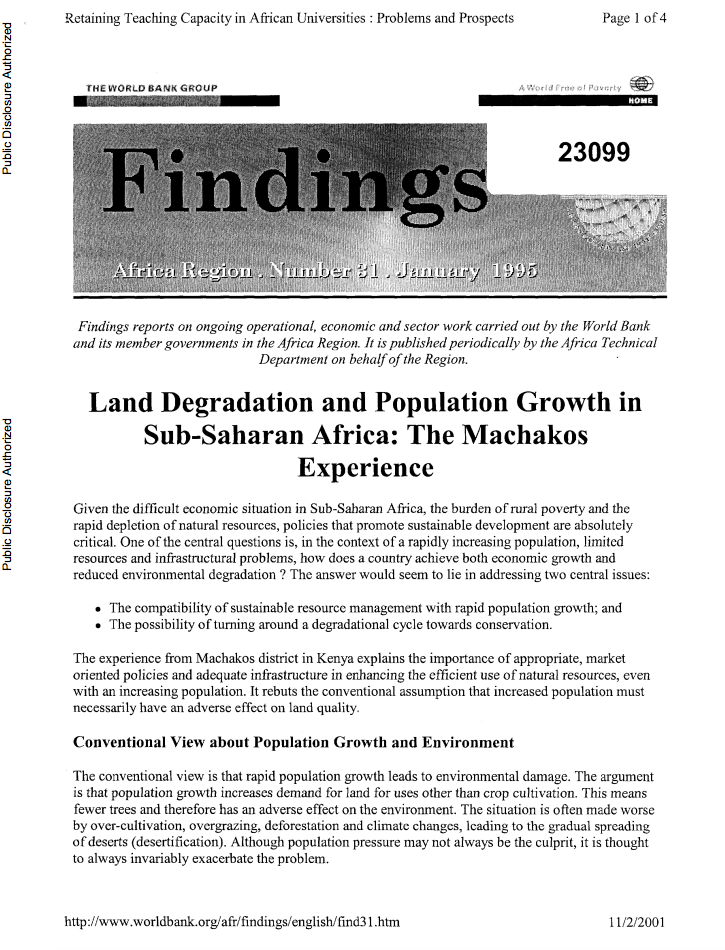Determinants of the Adoption of Sustainable Land Management Practices and Their Impacts in the Ethiopian Highlands
An extensive review of literature on the
determinants of adoption and impacts of land management
technologies in the Ethiopian highlands was undertaken to
guide policy makers and development agencies in crafting
programs and policies that can better and more effectively
address land degradation in Ethiopia. Several
generalizations emerge from the review: 1) the profitability
of land management technologies is a very important factor


